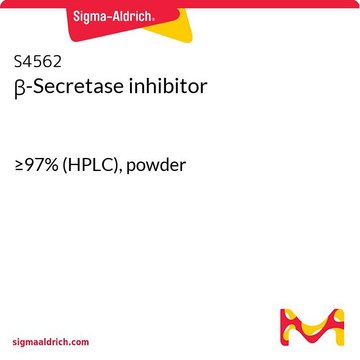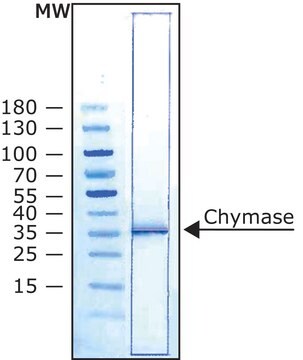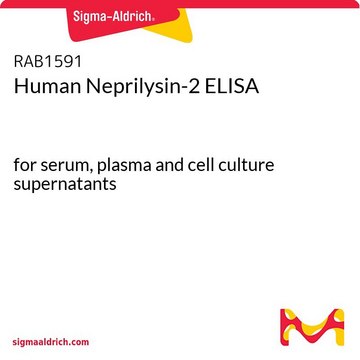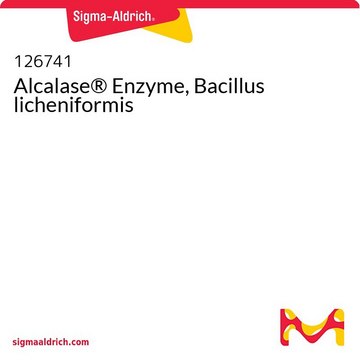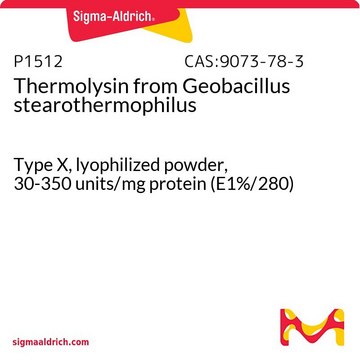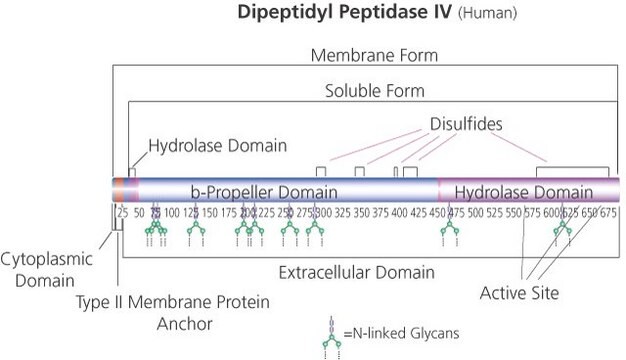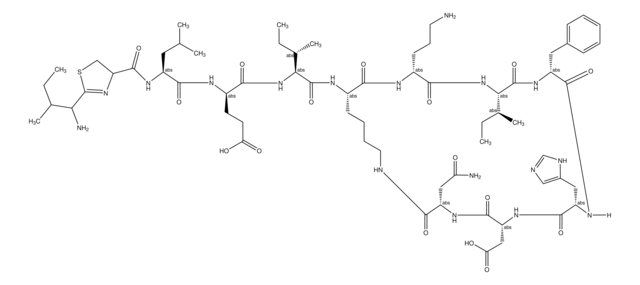O9515
Prolyl oligopeptidase
recombinant, expressed in E. coli
Synonym(s):
Prolyl endopeptidase
About This Item
Recommended Products
recombinant
expressed in E. coli
Quality Level
Assay
≥90% (SDS-PAGE)
form
solution
specific activity
≥10 unit/μg protein
mol wt
81.6 kDa
shipped in
dry ice
storage temp.
−70°C
General description
Application
Biochem/physiol Actions
Unit Definition
Physical form
Preparation Note
Storage Class Code
12 - Non Combustible Liquids
WGK
WGK 1
Flash Point(F)
Not applicable
Flash Point(C)
Not applicable
Regulatory Listings
Regulatory Listings are mainly provided for chemical products. Only limited information can be provided here for non-chemical products. No entry means none of the components are listed. It is the user’s obligation to ensure the safe and legal use of the product.
JAN Code
O9515-20UG-PW:
O9515-20UG:
O9515-VAR:
O9515-BULK:
Choose from one of the most recent versions:
Already Own This Product?
Find documentation for the products that you have recently purchased in the Document Library.
Customers Also Viewed
Our team of scientists has experience in all areas of research including Life Science, Material Science, Chemical Synthesis, Chromatography, Analytical and many others.
Contact Technical Service

